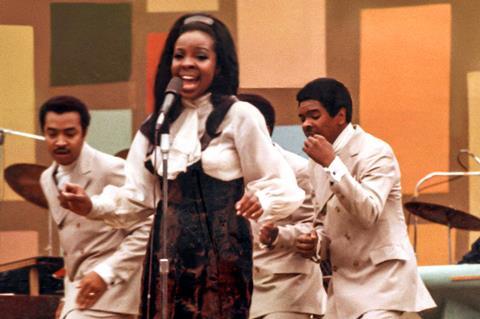
Ahmir ‘Questlove’ Thompson had never directed a film until the story of the Harlem Cultural Festival fell into his lap. He and Summer Of Soul editor Joshua L Pearson tell Dan Jolin about their journey through a forgotten slice of Black history.
It speaks volumes that even someone as plugged-in as Ahmir ‘Questlove’ Thompson was totally unaware of the Harlem Cultural Festival. At least, before he was approached in late 2017 to direct a documentary celebrating the forgotten event.
Despite being a five-time Grammy-winning member of Philadelphia hip-hop group The Roots, the author of various books including Creative Quest and Music Is History, and an adjunct professor at New York University’s Institute of Recorded Music, he drew a blank when producers David Dinerstein and Robert Fyvolent met with him backstage at The Tonight Show Starring Jimmy Fallon (where Thompson works as musical director) and said they wanted to talk to him about “the Black Woodstock”.
Over a series of six Sunday concerts during the momentous summer of 1969, they explained, the likes of Sly Stone, Stevie Wonder, Nina Simone, BB King, Gladys Knight and gospel icon Mahalia Jackson — a veritable who’s who of African American music — came together to perform to a combined audience of nearly 300,000 people in Harlem’s Mount Morris Park (now Marcus Garvey Park), just 100 miles south of the rock ’n’ roll excess of Woodstock itself.
Thompson was sceptical: “I thought, ‘Something’s wrong here. This didn’t happen.’” During the next few days, he checked with “every New York cultural leader”, and they hadn’t heard of the event either. “I Googled it and Google had never heard of it!” However, a week later, the producers handed him a hard drive containing around 40 hours of concert footage, extracted from a stack of two-inch videotape reels that had sat unwatched and unwanted in the basement of TV producer Hal Tulchin (who oversaw the original filming and died in August 2017) for half a century.
“Even then, I’m still thinking, ‘Well the footage has to suck. There has to be a logical reason why this never came out.’ And the first thing they show me is the ‘Precious Lord’ performance with Mahalia Jackson and Mavis Staples.” For this pivotal moment at the festival, legendary gospel artist Jackson teamed with the younger Staples (of popular R&B act The Staples Singers) to sing Martin Luther King’s favourite song — which had been personally requested by the civil-rights leader one year earlier on the night of his assassination.
“I thought, ‘Wait. This isn’t bad. It’s kinda awesome. How come I’ve never seen this before?’” says Thompson. “But I kept wanting to know what the catch was. I got defensive, like, ‘Why do you want me? Who said no to this? Did you ask Spike Lee first?’ I just couldn’t trust the fact that, of all the specks of the galaxy, somehow this footage was waiting for me.”
Thompson finally realised this was far more than an opportunity to add film directing to his already string-laden bow. “It was,” he says, “my destiny to correct history.”
Wiped from memory
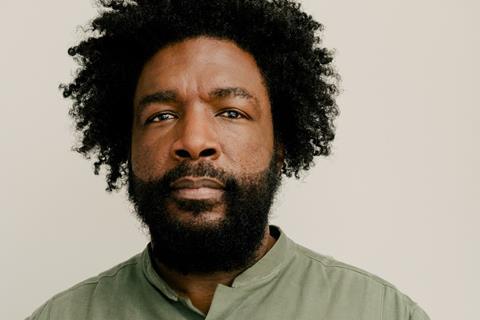
For Thompson, only one thing explains why such a star-studded event both contemporaneous with and as culturally significant as Woodstock should be so quickly forgotten, its audiovisual record languishing in a basement: Black erasure. After two hour-long specials were broadcast on New York City’s WNEW Metromedia Channel 5 [in 1969], Tulchin found there was no interest in his “Black Woodstock”. As the producer said in 2007, “Nobody cared about Black shows”.
“People get ruffled when they hear about Black erasure,” says Thompson. “They tend to go to the most extreme definition of racism: ‘I’ve never killed someone, so I’m not racist. I never set someone’s house on fire, so I’m not racist. I never spit in someone’s food while cooking, so I’m not racist.’ But there’s a level of racism that comes very gently and very passive-aggressively that is equally as effective.”
Yet Summer Of Soul (…Or, When The Revolution Could Not Be Televised) is not merely intended to reverse that erasure. It also serves to offer an alternative slice of African American history.
“The world is very familiar with the plight and struggle of Black people, in terms of our civil rights,” Thompson explains. “But there’s another aspect to our story that people aren’t that familiar with, and that is Black joy. It’s important that there is a balance, that you also see the good things and the happiness; to see us dancing, to see us having fun.”
The film is replete with heartwarming shots of the crowd, simply having the time of their lives. “We made a point of featuring pretty much every usable audience shot that we could in the film,” says Summer Of Soul’s Bafta-nominated editor Joshua L Pearson, who edited music docs What Happened, Miss Simone? and Keith Richards: Under The Influence. “Seeing these beautiful audience shots was really touching. Finally, these ordinary residents of Harlem are able to be seen. Harlem’s had this terrible reputation over the years and, really, it was a beautiful place, which was revelatory to me.”
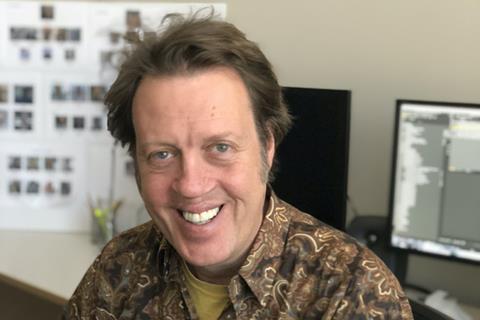
By the time Pearson joined the project, the footage had already been “ingested and organised” by, he says, “two guys out on Long Island” who, between October 2019 and February 2020, had assembled a working two‑inch videotape machine from the parts of several other defunct units, readjusting the antique footage to the highest possible quality. Meanwhile, Pearson adds, Thompson “had already been obsessively watching and listening to the footage. He put it on a loop in his home and had it playing all the time.”
The director describes this idiosyncratic set-up as an “art instillation” in his apartment. “I have about five monitors — in my bedroom, bathroom, living room, kitchen, studio room — where it just played, 24/7. If something caught my eye, then I’d take a note.”
Goosebump moments
The things that stood out to Thompson were not so much artists delivering their hits, than the “goosebump moments” of performance. For example, rather than including Stevie Wonder’s rendition of his 1967 smash ‘I Was Made To Love Her’, Thompson settled on the lesser-known ‘Shoo-Be-Doo-Be-Doo-Da-Day’, a performance that “showed where Stevie was about to go in the future”. He also elected to open the film with an astonishing drum solo by the then-19-year-old Wonder.
“It’s just so surprising,” marvels Pearson. “People haven’t ever seen that. I looked around on YouTube shortly after I started and found only one other low-quality clip of Stevie playing drums in some other setting. But not only was he playing drums, he’s so damn good at it. It’s breathtaking.”
After Thompson had 30 of these goosebump moments, producer Joseph Patel suggested he order them like a DJ set. Typically, Thompson says, when working on his sets, he starts at the encore and works his way backwards. So, for his first 205-minute cut — by which time he had whittled down those 30 moments to 17 — he knew he wanted to end with Mahalia Jackson and Mavis Staples: “A beautiful moment.”
However, as the modern world beyond his edit suite started to “unravel”, Thompson realised this film needed to be far more than just a concert movie.
“There was a point in April and May 2020 when suddenly we’re not only dealing with the pandemic, but we’re dealing with the death of George Floyd, Breonna Taylor, there’s rioting all in the streets,” says Thompson. In this context, to climax with the rapturous uplift of Jackson and Staples felt like “a Hollywood ending”. So Thompson reconfigured his set list to peak instead with the protest-music power of Nina Simone, who delivered one of her first public renditions of ‘To Be Young, Gifted And Black’ at the festival.
“Once we made that adjustment, suddenly this film felt urgent to today, and connected,” the director says. To add to that sense of urgency, he also used the extra space that lockdown gave the production to shave 90 minutes off the running time, while folding in some achingly relevant sociopolitical context.
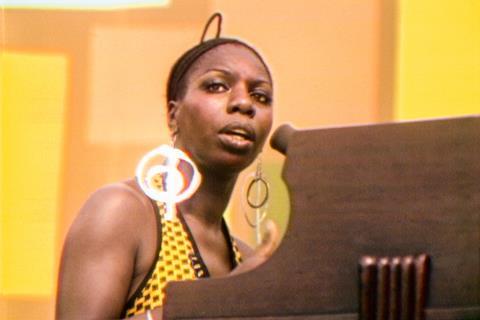
“Interestingly, the concert itself was very apolitical for the most part,” says Pearson. “Other than Jesse Jackson’s appearance, there wasn’t a lot of stage banter from the artists about the Vietnam War or civil rights. So lockdown was very helpful, because we ramped up our archival digging, and our archival researcher Elizabeth McGlynn kept raking in all this great stuff.”
Early in her search, McGlynn found the only news coverage of the festival: a reporter interviewing attendees about the moon landing, which occurred during Stevie Wonder’s set. Their ambivalence towards this historical event is deeply telling. “Never mind the moon, let’s get some of that cash in Harlem,” one interviewee says.
“When we found that footage, we thought, ‘We gotta put this in there,’” Thompson says. “Then once we opened that door, it was like, ‘We’ve got to explain everything else and tell a story.’” He was particularly inspired by rap pioneers Public Enemy’s second album It Takes A Nation Of Millions To Hold Us Back — “one of my biggest North Star moments of creativity” — which was created using more than 400 audio samples from a wide variety of sources. “If Public Enemy were to make a movie, how would they make it?” Thompson asked himself. “That’s the level of intensity we wanted by the end of the process.”
The director confesses to some frustration at what he could not include in the film, such as the festival’s tantalising no-shows, including Jimi Hendrix and Aretha Franklin, and a segment on the event’s comedy performances. But most frustrating was his inability to tell the story of the festival’s charismatic founder and compere Tony Lawrence, an enigmatic figure who disappeared two decades ago.
“Man, he would have made a great spy,” says Thompson. “I’ve never encountered a human so ubiquitous and absolutely elusive at the same time. It’s weird. After the movie came out, there was suddenly a Wikipedia page with all these facts about his life as a singer and a promoter — all these things we didn’t know. I was hoping that maybe if he was alive, the movie would bring him out. But there’s no trace of any family or any kids. He just stayed off the radar.”
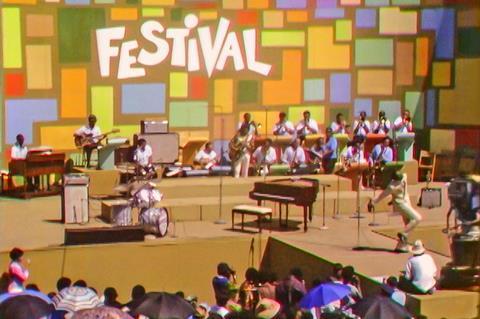
Even so, the achievement and success of Summer Of Soul are untarnished, right down to its nominations at Oscar (documentary feature) and Bafta (documentary and editing). “This is exciting territory,” Thompson smiles. “I’ve never been down this path of life before, so I’m enjoying every second of it.” He has no plans to leave that path either. While editing the film, he realised there was more of a story to tell about psychedelic-soul pioneers Sly And The Family Stone, whose rousing performance of ‘I Want To Take You Higher’ is another of the film’s highlights.
“This was a dress rehearsal for Woodstock, and 10 days later Sly’s life was gonna miraculously turn around and change,” says Thompson. “As we were editing, I thought, ‘Man, it would be great if someone did a documentary on what happened to Sly Stone after Woodstock.’”
Only two days later, rapper-turned-actor Common called Thompson, having heard he was working on “that Black Woodstock movie”. Common revealed he owned the life rights to Sly And The Family Stone, and asked if Thompson would like to direct a documentary feature. To convey his reaction, Thompson mimics his mind exploding. “So right now, yes, I am working on Sly And The Family Stone,” he confirms.
For someone who was initially resistant to moving into directing — “I’d never had long-term plans or goals to do it” — he is fully committed. “The life I knew between ’71 and 2020 is now in the rear-view mirror,” he says. “It’s full steam ahead.”

























No comments yet